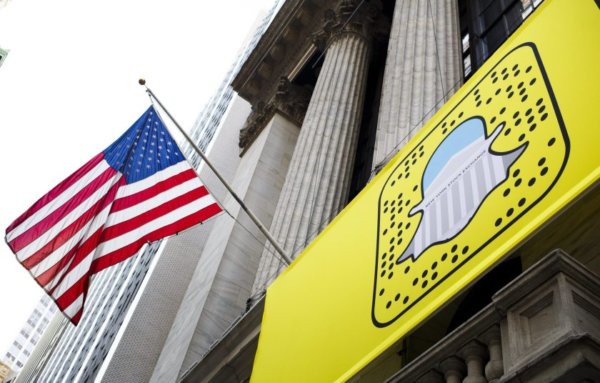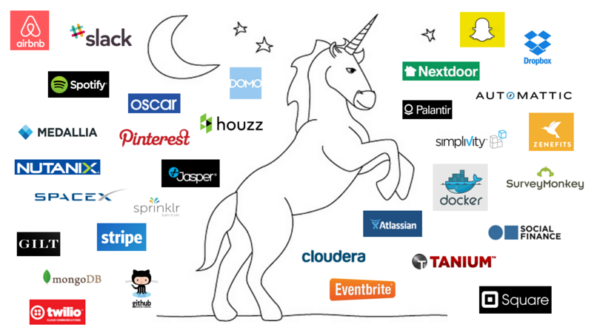
What Does it Take to Become a Unicorn Startup?

They’re rare, they’re magical and they have to be seen to be believed.
But unicorns aren’t just mythical beasts: they’re what every business owner aspires to.
A unicorn startup, or unicorn company, is a privately owned business that is valued at over $1 billion. Although still very much a rarity, the number of unicorn startups is higher than ever. The exact total is always in flux, but recent research by CB Insights found that there are over 390 unicorn startups globally.
So how do they do it?
To find out how clever ideas become global sensations, experts at Positive Commercial Finance have taken an in-depth look into some of the biggest unicorn companies in the UK and across the globe, analysing common trends to find out exactly how to turn your business into a unicorn.
What do unicorn companies have in common?

Regardless of industry, location or manpower, most companies that grow to unicorn status have the following in common:
A five-year build-up — On average, it will take a successful unicorn startup five years to hit the coveted $1 billion mark. This isn’t always the case, though — some companies can soar to unicorn status in as little as two years, while others can take more than a decade of hard work to achieve. Find tech startup ideas that will be a success at ikooru.com.
They’re built on partnerships — If you’re looking to create a unicorn startup, your best bet is to find a business partner. Of the top 100 most successful unicorn companies, 35% began with two founders. It’s not all bad news if you’re more of a lone wolf, as companies with a single founder are the second most common. However, when it comes to unicorn startups, it seems that too many cooks spoil the broth.
They mainly produce software — The most successful unicorns are those that provide their customers with quick and convenient services. That’s why 87% of successful unicorns are creating software products: easy-to-use, close at hand programmes that make our lives easier.
They cover a wide range of industries — Whereas software dominates the basis of the products for unicorn startups, they span a wide range of industries. Although retail companies have the lion’s share, a quarter of unicorn companies are involved in technology, as well as a number of finance and media businesses.
Where are the most unicorn companies?

When it comes to unicorn startups, Americans have a knack for getting it right.
The sheer volume of companies in the USA and China no doubt play a part statistically, as there are almost 30 million small businesses operating in America. Small businesses make up 99.9% of companies in the USA, meaning that the 703 American unicorn startups – significantly higher than any other country – are included in just 0.01% of USA businesses.
China also produce an impressive number of unicorns, but at 206, it’s less than a third of the number based in the USA.
Locations certainly make a difference when it comes to unicorns but it’s specific areas within each country that can make the difference.
For example, Silicon Valley, a hub for technology and innovation, has founded 31 unicorn startups over the years, including giants such as Uber and Airbnb. With most successful unicorn startups focusing on software development, areas like Silicon Valley that dominate the tech industry are ideal locations.
But how does the UK stack up?
Although the UK produces far fewer unicorns than the likes of China and the USA, when comparing populace and resources, we’re actually doing very well in the grand scheme of things – third in the world, in fact.
A report from London Tech Week 2019 by Tech Nation and dealroom.co even found that 13 UK companies reached unicorn status in the past 12 months; that’s more than one a month!
Much like Silicon Valley, London has become somewhat of a hub for unicorn startups, with 45 unicorns created in the city. However, the rest of the UK hasn’t been sat twiddling it’s thumbs – far from it. Cambridge, Oxford, Manchester, Leeds, Bristol and Edinburgh each have the honor of creating multiple unicorn startups.
Unrealised UK unicorns
Unrealised unicorns are businesses that have reached the valuation of over $1 billion without yet selling the company.
Looking at the data provided by dealroom.co, the majority of the current UK unicorn startups focus on finance as well as the growing interest in artificial intelligence – following the same pattern of unicorns across the globe.
Notable companies that are expected to reach unicorn status in the future include hotel booking service Secret Escapes, energy supplier Bulb and Fintech disruptor Atom Bank.
What makes a good unicorn startup idea?

1. They fill a need
When creating your own product or service, it’s easy to get carried away believing that your product is the greatest on the market. The problem is that if nobody wants what you’re selling, all your efforts will have been in vain.
Entrepreneurs succeed when they study the wants and needs of the general public, putting their own preferences to one side if it doesn’t fit with what customers want. Blockbuster, for example, believed that Netflix was ‘too niche’ to succeed. Back in 2000, the CEO of Netflix offered the former CEO of Blockbuster ownership of Netflix for $50 million. Blockbuster declined and went bankrupt whereas Netflix is now worth billions.
The companies that become unicorns are those that have ideas that will be useful to everyone, regardless of country – meaning they won’t struggle when looking to expand internationally.
2. They listen to the right people
Like all things in life, there are people who are more experienced and have better ideas. If someone with a proven track record is willing to take the time to give you advice, you should take it. Successful business owners are those who recognise the right people to listen to, whether it’s big-picture advice or simply tips to help with fundamental day-to-day operations.
3. They are focused, committed, and motivated
Anyone can come up with an idea – maybe even a good one – but it takes a different breed to follow through with your ideas.
A successful business person is someone who can stick with their plans and see them through to the final result. No company became a unicorn with a founder that easily lost interest or fell at the first hurdle.
Steve Jobs, for example, pushed a couple of risky products in the 80s that didn’t pay off and was subsequently forced out of his own company. Jobs returned years later as CEO after Apple bought his new company NeXT Inc.
The reason unicorns succeed is that their owners were motivated enough to stick with their ideas through the hard times until they eventually saw the fruit of their labours.
4. They are flexible and able to adapt
Sticking by your project doesn’t mean you shouldn’t let it evolve. Consumer trends can change as easily as the weather, which is why businesses need to be able to not only keep a close eye on their customers’ habits but be able to quickly adapt to change.
Before forming social media giant Twitter, Evan Williams, founded a podcasting platform called Odeo before creating the social media giant Twitter. When the iTunes store announced that it would host podcasts, Odeo became obsolete. Rather than giving up, he dusted himself off and started again.
No unicorn startup got it right from the get-go – they evolved with their market. Putting your pride to one side and admitting when you’re wrong is the first step to getting back on track with your business.
5. They value quality
No one ever made $1 billion by selling a shoddy product. The whole premise of unicorn businesses is to create a quality product that people across the globe want to buy. If your product falls apart or your software frequently crashes, there’s no chance of expanding and gaining more custom.
6. Their scope is global
The reason unicorn startups made $1 billion? They thought big.
Trading internationally isn’t a new concept; in fact, it’s how businesses become unicorns. If you’re looking to sell your services globally, other countries and cultures should be at the forefront of your considerations, even if your ideas are still in conception.
Is your product useful in other countries? Is it even relevant?
If you’re hoping to sell gin worldwide, you’re not going to make many sales in countries that prohibit alcohol. Even something as small as your company name could have ramifications – you never know when an innocent business name could be something rude elsewhere. For example, American tissue company Puffs didn’t do so well in Germany where the term ‘puff’ is slang for a brothel.
Final thoughts
As businesses have a 0.00006% chance of becoming a unicorn, it’s understandable that joining the ranks may be a daunting task. However, clearly it’s not impossible.
By following the trends in Unicorn startups, you’ll give yourself the best chance of hitting the incredible milestone. Whether it’s creating software in a more favourable market like fintech or artificial intelligence, or simply having a good head for business and adapting your product to fit your market and expand globally – your startup could be the next name to join the ranks.















































